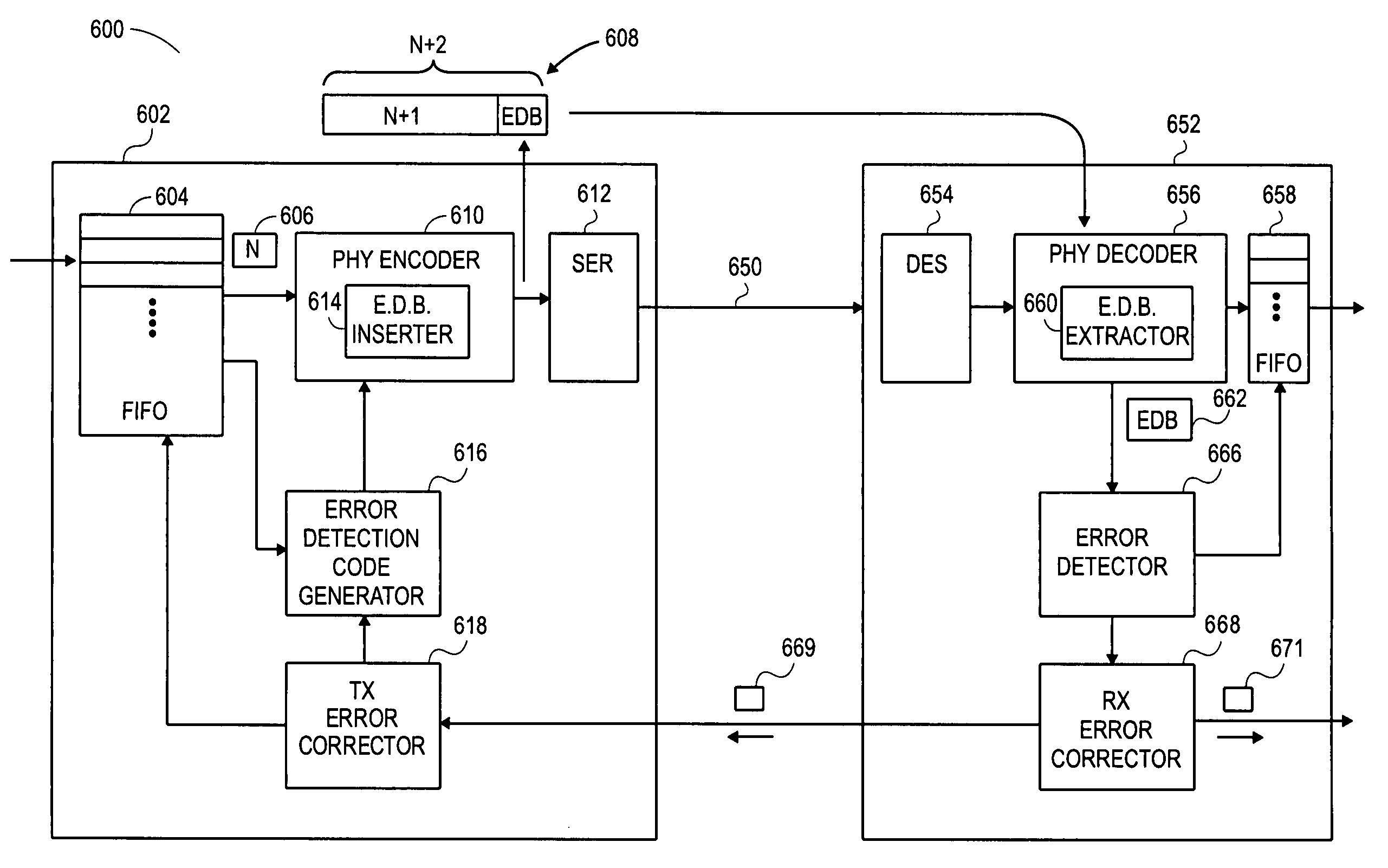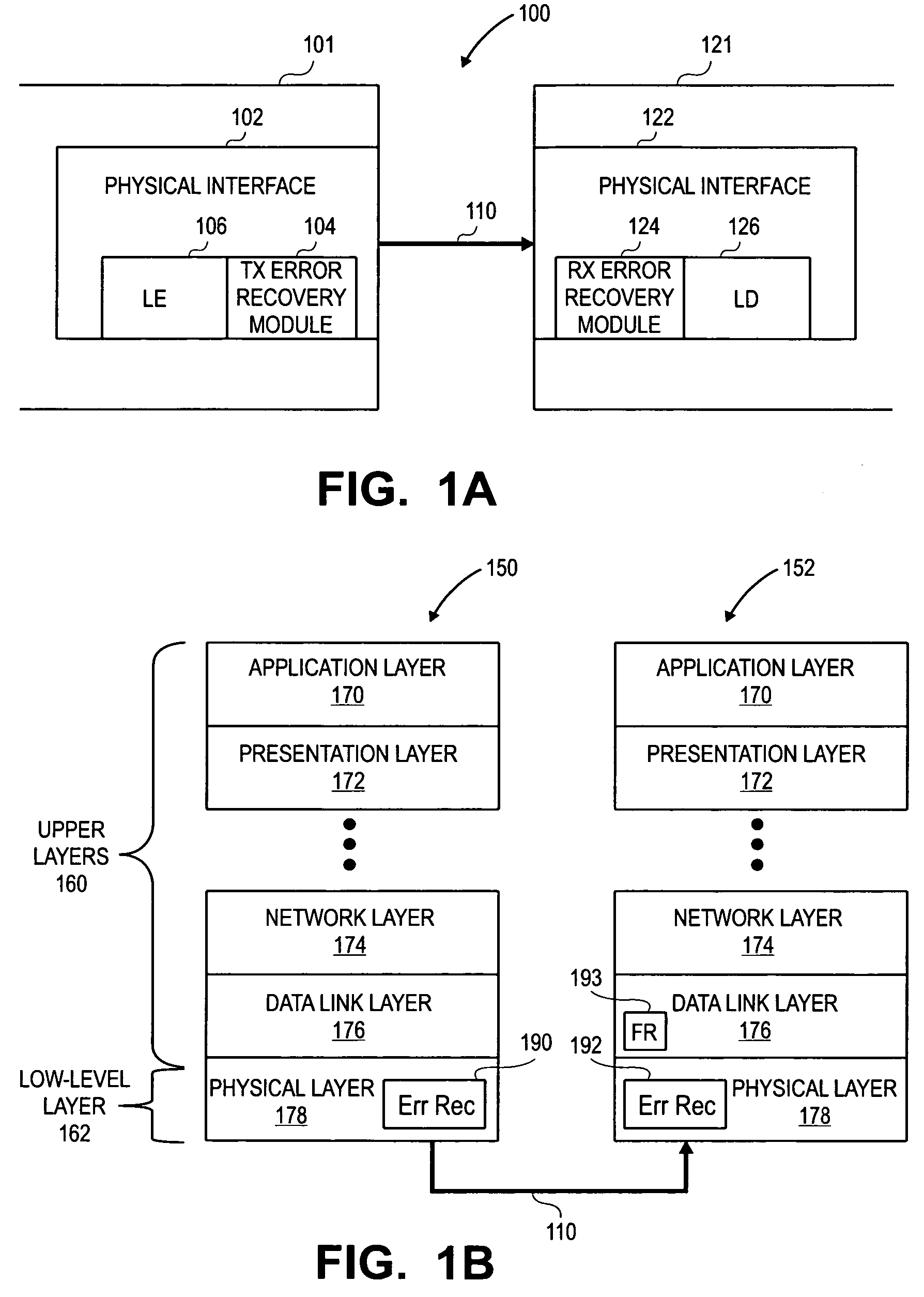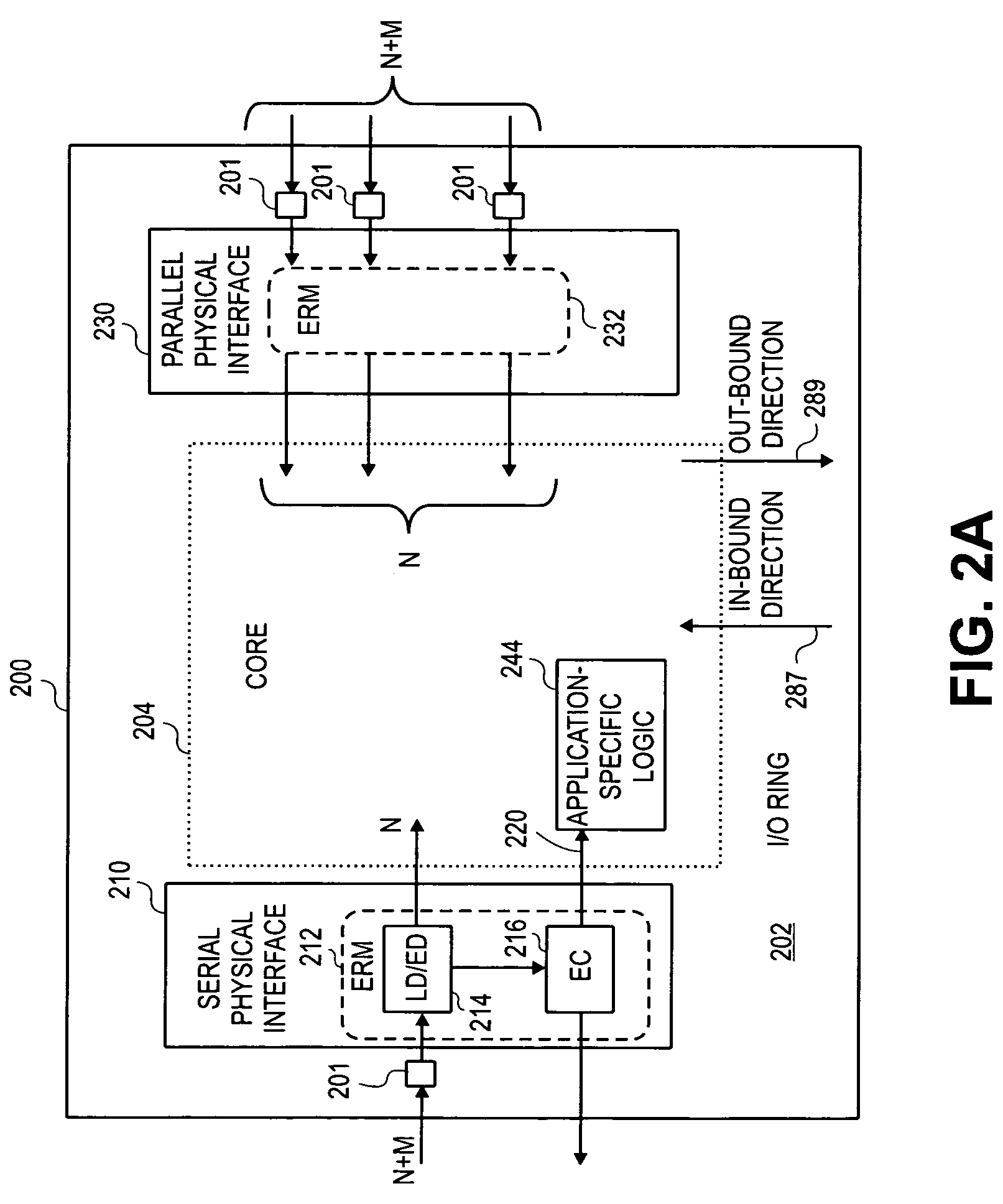Error detection in physical interfaces for point-to-point communications between integrated circuits
a physical interface and integrated circuit technology, applied in the direction of coding, instruments, code conversion, etc., can solve the problems of thwarting reliable point-to-point communication, and conventional serial data links are susceptible to data corruption during transit, so as to reduce the time the apparatus receives.
- Summary
- Abstract
- Description
- Claims
- Application Information
AI Technical Summary
Benefits of technology
Problems solved by technology
Method used
Image
Examples
Embodiment Construction
[0024]FIG. 1A is a block diagram 100 illustrating physical interfaces that include error recovery modules to detect errors in association with line encoding / decoding, according to at least one specific embodiment of the invention. Physical interfaces 102 and 122 provide for physical connectivity between devices 101 and 121, each of which can be an integrated circuit, such as a memory chip, or an electronic device, such as an Ethernet line card or a networked computer. Physical interfaces 102 and 122 include a line encoder (“LE”) 106 and a line decoder (“LD”) 126, respectively, to facilitate transmission and receipt of data bits via physical medium 110. In one embodiment, line encoder (“LE”) 106 performs line encoding (also referred to as “line coding”), which is the translation of digital information expressed in binary (i.e., data bits) into a specific code (or code word) to optimize transmission of the encoded data bits over a particular type of medium, such as copper wire, optica...
PUM
 Login to View More
Login to View More Abstract
Description
Claims
Application Information
 Login to View More
Login to View More - R&D
- Intellectual Property
- Life Sciences
- Materials
- Tech Scout
- Unparalleled Data Quality
- Higher Quality Content
- 60% Fewer Hallucinations
Browse by: Latest US Patents, China's latest patents, Technical Efficacy Thesaurus, Application Domain, Technology Topic, Popular Technical Reports.
© 2025 PatSnap. All rights reserved.Legal|Privacy policy|Modern Slavery Act Transparency Statement|Sitemap|About US| Contact US: help@patsnap.com



